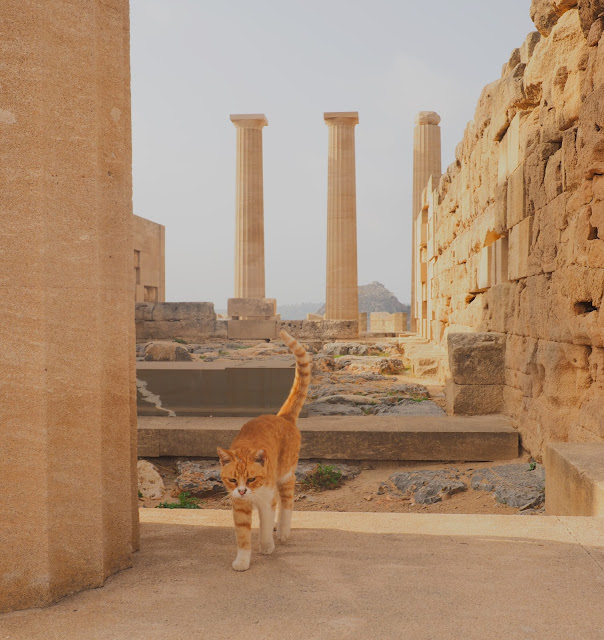It was autumn 2015 when I was there, on a Silversea cruise, and ironically my first blog comment about the island was that it has trees - having just visited Mykonos, which has none (but is still gorgeous). I liked Rhodes very much, and was impressed by its antiquity, which was pervasive, and its sheer prettiness. It’s understandably a standard port for the cruise ships. Many of their passengers guests would be Brits, who without a doubt would have fallen foul of my guide Stefanos's declaration that, with 300 days of sunshine a year, any conversation in Rhodes about the weather is considered rude, as a sign of boredom. Not now though, I bet.
He took us south to Lindos, which is one of the towns that have been evacuated. It's famous for its Acropolis, an arty ruin on top of a hill, ancient of course, and with splendid views over, I have to say, not a remarkably tree-clad landscape by our standards, though still very picturesque. The town itself is classically pretty, all narrow lanes, cobbles, white paint, colourful shops, stray cats, and quite a lot of resigned-looking donkeys descended from Californian imports donated by the US after WW2 destroyed all the roads on the island.
Later on I had a lovely wander around the Rhodes Old Town - more cobbled lanes, fountains, frescoes, stalls, buskers, a castle with a grassy moat and pyramids of cannonballs. Really lovely, I thoroughly enjoyed myself, especially the cup of iced tea at a café on a hill with a cooling breeze and a view of the castle, mosques, a church spire, the city wall, a windmill, the harbour with ferries, yachts and cruise ships, and, not far away, Turkey Türkiye.


















































